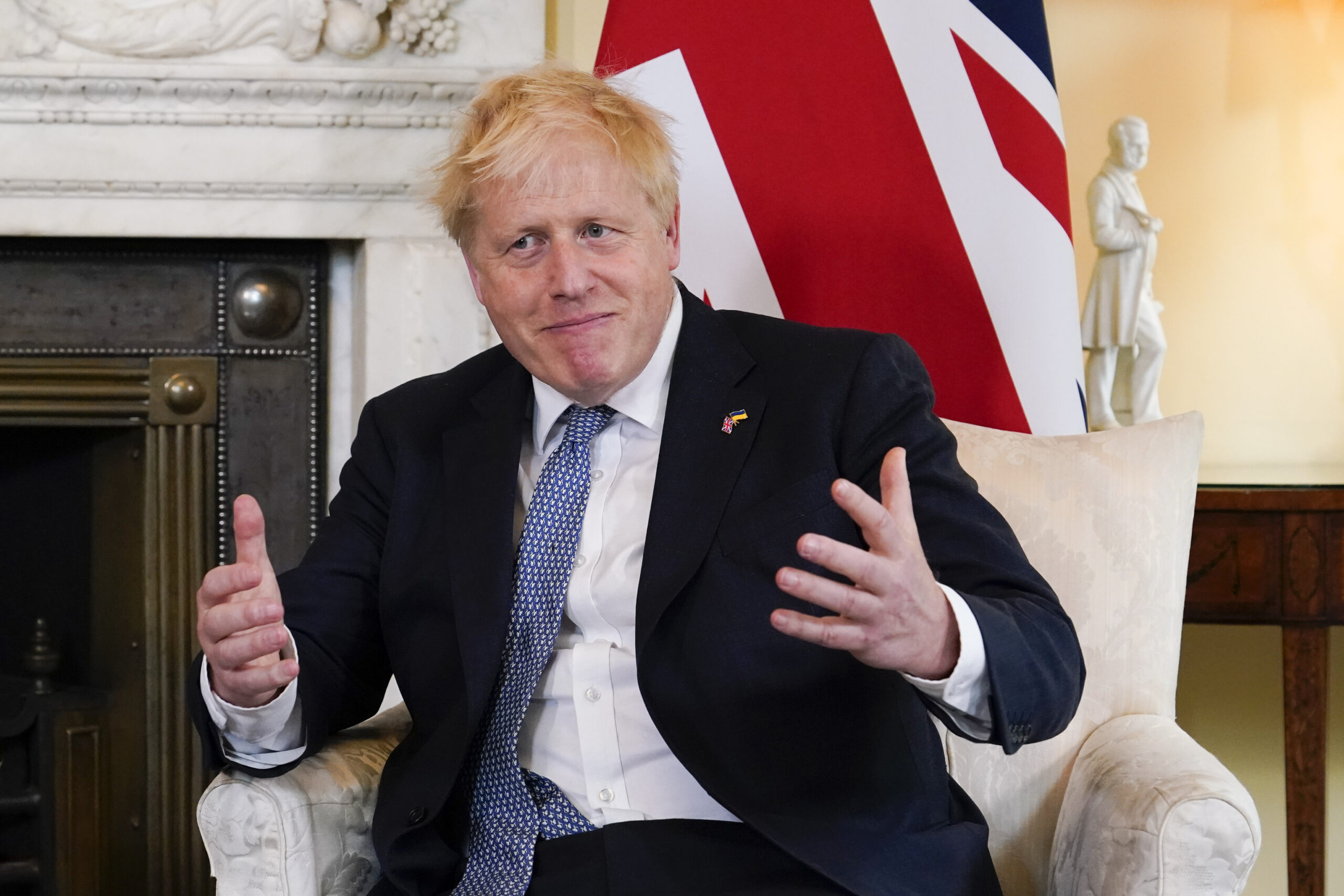With 211 votes in favor and 148 against, the ‘premier’ Boris Johnson has survived the motion of censure promoted by the rebels of the Conservative Party, deeply divided by the impact of ‘Partygate’. Despite winning the vote among the 359 ‘Tory’ deputies, and although, technically, a year would have to pass for a new vote, Johnson has been left in a very compromised position, with almost half of the voters of his own party in favor of his resignation.
The so-called “Jubilee coup” was consummated this Monday when the president of the 1922 parliamentary committee, Graham Brady, confirmed that the ceiling of 54 deputies (15%) had been exceeded calling for a change of leadership in the Conservative Party . Brady has briefed Johnson and the two of them have agreed to set the vote as soon as possible.
Johnson has spent all day trying to win the support of enough lawmakers. In a last attempt to avert the rebellion, the ‘premier’ has defended in person his permanence in the post before the parliamentary commission. The conservative leader has placed special emphasis on his ability to win elections and has boasted of having achieved the biggest electoral victory for the party in 40 years in December 2019.
“Now is the time”, the leader of the Executive has urged his loyal deputies, at the time of emphasizing that the “fratricidal war” of the ‘tories’ can serve the keys to Downing Street on a platter to the leader of the opposition, the Labor Keir Starmer.
According to ‘The Times’, Johnson has also told the deputies that “I would do it again”, in reference to his presence at the Covid parties in Downing Street that he himself has defined over and over again as “work events “despite having been fined 118 euros by the police. The attitude of the ‘premier’, half apologizing and not showing enough remorse before the voters, has been the reason given by several deputies to justify their support for the motion of censure.
The senior staff of his Government, from the Foreign Secretary, Liz Truss, to the Secretary of the Treasury, Rishi Sunak, passing through the head of Justice, Dominic Raab, and Michael Gove, have been closing ranks throughout the day with the ‘ premier”‘, who has projected the image of continuing to work as a normal day and has released photos of his telephone conversation with the Ukrainian president, Volodimir Zelenski.
The Secretary for Brexit Opportunities, Jacob Rees-Mogg, has been the one who has most vehemently defended him against the rebels and has anticipated that Johnson would continue in his post even if he won the motion by a single vote. Rees-Mogg has warned that the promoters of the vote were once supporters of remaining in the EU and that Johnson’s departure from Downing Street could jeopardize Brexit.
Along the way, however, Johnson has been losing support such as that of John Penrose, former head of the anti-corruption unit, who has declared that Johnson had no other option but to resign. The leader of the Scottish ‘Tories’, Douglas Ross, has assured, for his part, that he would vote against the ‘premier’ after having heard “loud and clear” the outrage of voters at the Covid parties in Downing Street when the country was under lockdown.
Former Foreign Secretary Jeremy Hunt, who competed with him for the ‘tory’ leadership after Theresa May’s resignation in 2019, has warned that Johnson has left the party “without integrity, commitment and vision” and has openly called for the vote against the deputies.
In a letter addressed in advance to his co-religionists, Johnson has accepted the challenge and has gone so far as to ensure that the caesura motion can ultimately be “a golden opportunity” to leave ‘Partygate’ behind, to silence “the favorite obsession of the press” and carry on with their work “without noise”.
The ‘premier’ has admitted that he has been “under intense fire in recent months” and that the Conservative Party has suffered. “Some criticisms have perhaps been fair, others not so much”, he has clarified him. “But when the points have been valid, I have listened and made significant changes.”
“They will need a flamethrower to be able to kick me out,” Johnson claimed in statements to members of his cabinet, as revealed by ‘The Daily Mail’. More than 120 deputies have publicly given their support to the ‘premier’ in the final stretch of the motion, according to the count of the conservative newspaper, among the growing concern in Downing Street about the final difference.
The support of 180 of the 359 ‘Tory’ deputies is enough for Johnson, but analysts have warned that the ‘premier’ needs a resounding victory over the rebels to avoid the specter of resignation.
“Some will recall that Theresa May moderately comfortably won the no-confidence vote in 2018 (supported by 200 out of 317 MPs) and yet recognized that her time was limited,” former Brexit Secretary David Davis, one of the first ‘Tories’ to openly ask for the resignation of their leader.
“May knew her days were numbered, but she wanted to do a number of things before leaving her post,” Davis warned. “Although I don’t think something like that could happen with Boris. He will hold on to the job.”
“They should kick him out of number 10 screaming and kicking,” former Johnson communications director Will Walden told the BBC. “It would take several people with guns to force him out. He’s doing what he’s wanted to do all his life, and he’s not going to go away easily.”
Walden himself has acknowledged, however, that history shows that if a prime minister does not win a vote of no confidence in a convincing way, what awaits him is “death by loss of blood”. “These things never end well,” concluded a ‘tory’ deputy who did not want to reveal his name to ‘The Guardian’. “The genie is out of the bottle.”
Conforms to The Trust Project criteria
















